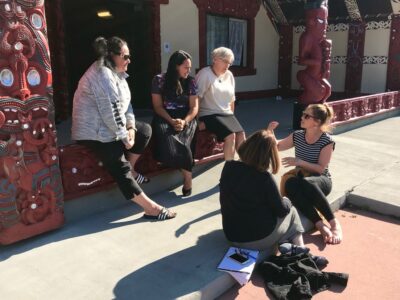
Master's Study
Posted on 20 December, 2023
https://poutamapounamu.org.nz/news/2023/masters-study-1
The Poutama Pounamu Pathway to Master's
There are growing numbers of individuals undertaking Master's papers that build on their learning and participation in the Poutama Pounamu Blended Learning.
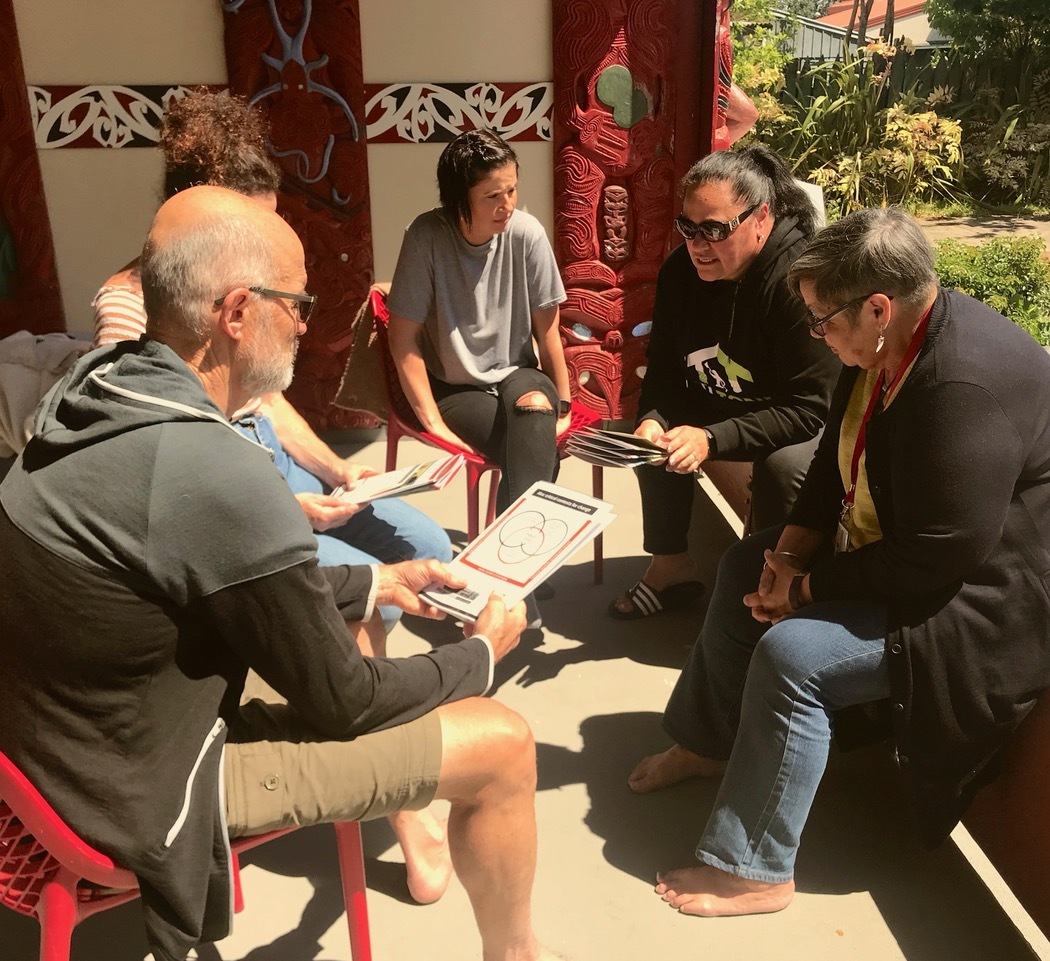 Completion of all elements of the Blended Learning can be recognised as prior learning and credits added to an individual’s record of learning.
Completion of all elements of the Blended Learning can be recognised as prior learning and credits added to an individual’s record of learning.
Reflecting on their experience
As 2023 draws to a close, six more candidates have submitted their theses to complete the requirements of their Master’s degrees.
Kristin McGill, Assistant Principal at Gisborne Girls' High School, explains how the Blended Learning provided the perfect starting point for her studies:
I had been thinking of undertaking further study for a decade but with the Blended Learning as a foundation I almost got going without realising it; the work just naturally shifted into the Summer School paper and I had begun.’
Jess Williams, Kristin’s colleague at Gisborne Girl’s High School, also found the transition into further study easier than she might have imagined:
‘Mere Berryman made the step into study normal, I found I loved the process, I loved reading the articles, loved learning through other people’s thinking and then the process of pulling all that together and making sense of it for myself.’
Tracey Adams, a former ERO reviewer now Principal of Coromandel Area School, hadn't previously considered further study:
‘The Blended Learning was life changing for me - it was the changing of the lens through which I saw everything. I was able to see things I hadn’t realised before and that motivated me. I felt safe to step into that space and write about what I was seeing around me.’
Rototuna Primary School’s Ngahuia Nuri says she wouldn't have even considered undertaking a Master's had it not been for the opportunity for her work within the Blended Learning to contribute to a qualification:
‘That and Mere’s faith in people’s ability to achieve!’
Mary Stubbings, Curriculum Advisor at the Ministry of Education, echoes that sentiment:
'If Mere believes you can do it, you can ... having people who had high expectations for me, a belief in my academic ability, people who provided ongoing support and encouragement, along with critical reflection, was inspirational. The pre-Master's papers were marked with comments everywhere and I was guided to improve without feeling that I was in the wrong or that I wasn't up to it ... I had never had teaching like this before...’
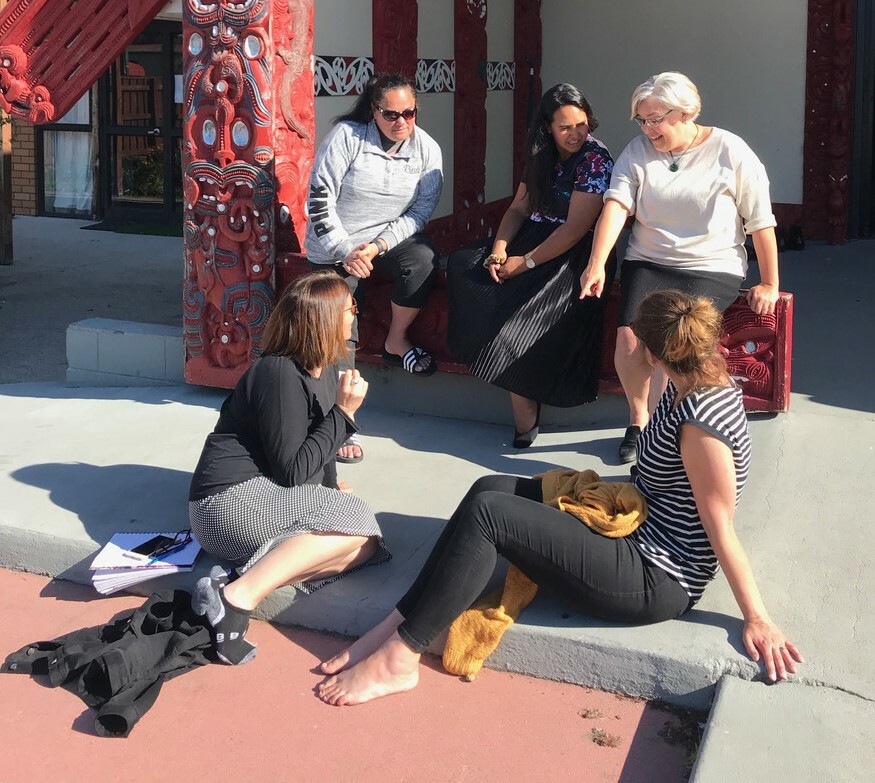
Carma Maisey, whose thesis looks at other's experiences of the Blended Learning, suggests that this was a very different learning for everyone:
'Being immersed in culturally responsive pedagogy was not an experience I had had before professionally. This wasn’t, you’re an empty vessel and you are there to be filled up. In these situations I had a professor who I’ve admired for years and years, treating me as a peer, wanting to know my opinions, valuing my experiences and my knowledge that I’d brought along to the wānanga…that made a huge impact. I felt like I had something to contribute and that was through being in a culturally responsive relationship with the people I was working alongside.’
The six women became an online support network for one another, sharing their challenges and what they had discovered, be it readings or referencing.
As Jess Williams and Kristin Mcgill describe it:
'We carried each other at different points, wrapped ourselves around each other.’
'Completing a Master’s part-time and being remote from one another could be isolating but the regular touching base saw us engage in challenging conversations, pushing one another along.’
Thesis topics
All of the following papers will be found in the Waikato University Research Commons early in 2024.
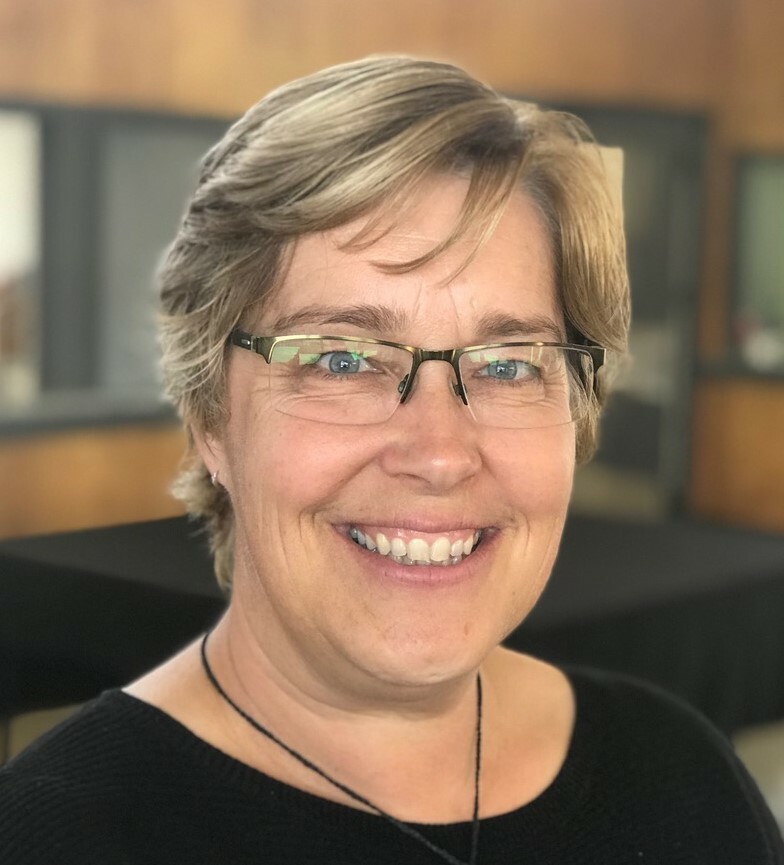 Kristin McGill
Kristin McGill
- Understanding Cultural Relationships: Whānau, Whanaungatanga and Māori Student Attainment of University Entrance in a Mainstream Secondary School in Aotearoa, New Zealand.
Kristin’s thesis looks at the importance of cultural relationships in supporting Māori student achievement of University Entrance:
‘My research examined the stories of five female ākonga Māori and their whānau. It looks into their relational experiences of whanaungatanga and whānautanga with their school, and the impact this had on their academic achievement.’
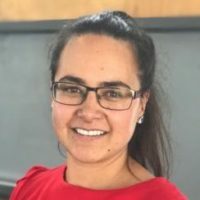 Jess Williams
Jess Williams
- The Mātauranga Māori in Mathematics Directive: exploring the place of mātauranga Māori in mathematics teaching and learning.
The Ministry of Education has directed that mana ōrite mo te mātauranga Māori be embedded in teaching, learning, and assessment. Thus, this research primarily aims to understand the development leading to the directive of including mātauranga Māori in education policies.
‘My research highlights the confusion and challenges secondary mathematics educators have toward defining, and subsequently implementing, mātauranga Māori in their classrooms but also how indigenous worldviews have the potential to ensure marginalised learners reach their mathematics potential.’
 Tracey Adams
Tracey Adams
- Navigating the Evaluation Space between Schools and ERO in a Transformative System.
Tracey’s research looks at the potential of culturally responsive evaluation in system transformation with reference to ERO’s power-sharing and partnership approach intended to give effect to Te Tiriti o Waitangi and greater equity for Māori learners and their whānau.
‘As I came through the Blended Learning I found myself in this space where ERO was embarking on something truly innovative and I could see all the connections to what I had been learning and what it could be.’
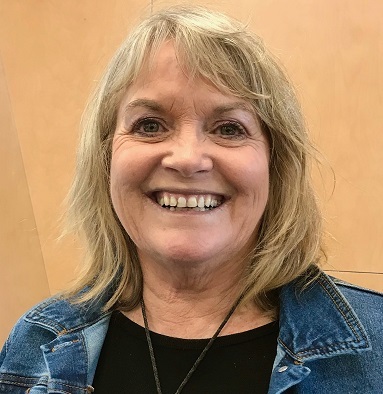 Mary Stubbings
Mary Stubbings
- Lifting the Blankets of Ignorance and Silence: blocking bicultural relationships in Aotearoa, New Zealand.
Mary chose a Master's topic that explored the varying perceptions of Māori and Pākehā in the small town in which she grew up. Her research reveals that many Pākehā experiences of Māori have been mediated through a process of settler silencing that has created a situation of blindness to much of what Māori were experiencing at the same time, in the same schools, and in the same town. She challenges Pākehā to 'step up' by shattering the sphere of silence around our combined historical narratives.
‘It was uncomfortable as I realised that growing up in a predominantly Maōri town didn't mean that I knew anything about being Māori.’
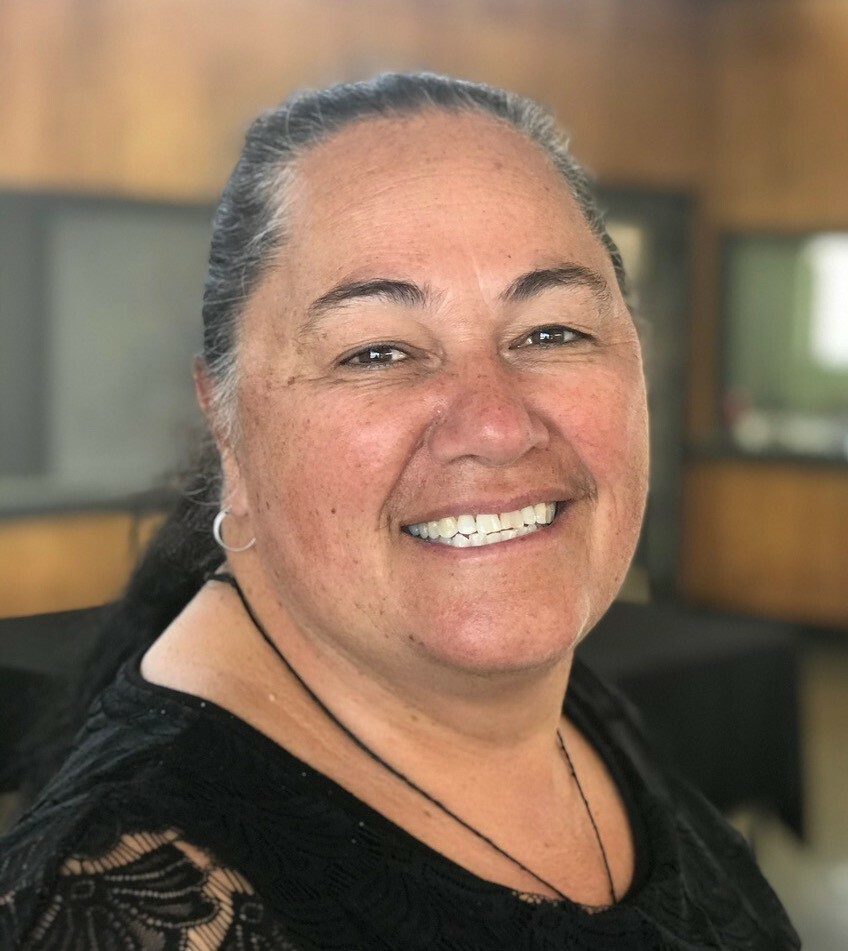 Ngahuia Nuri
Ngahuia Nuri
- Kaumātuatanga: supporting school leaders to develop cultural values while resisting the dominance of colonialism.
Ngahuia’s thesis follows the journey of three kaumatua working alongside the leaders of a mainstream primary school where ākonga Māori were in the minority. It highlights the coming together of leaders from two different worldviews with a common purpose - to help tamariki Māori enjoy and achieve education success as Māori.
‘It was the slow and deliberate process of establishing a relationship where there was a real appreciation of each other’s knowledge system, a respectful space where everyone could take collective ownership of the actions that needed to be taken.’
 Carma Maisey
Carma Maisey
- Changing Hearts and Minds: investigating transformative praxis from participating in the Poutama Pounamu Blended Learning
Understanding just how much her own professional outlook had changed by participation in the Blended Learning, Carma focused on a number of other participants in English-medium state schools - the very context where our Māori children struggle the most to fit in and prove their potential.
‘Everyone that I spoke to had had significant changes in the way they taught; in the way they understood themselves. They had gone on hugely personal journeys of discovery - their understanding of our country, and our education system, had changed. The way they are as teachers and people has completely transformed because of this year-long programme.'
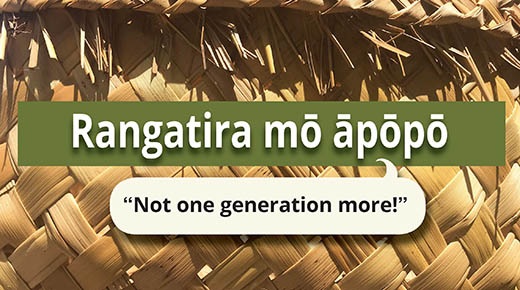
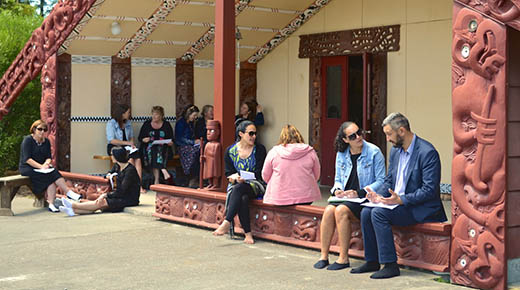
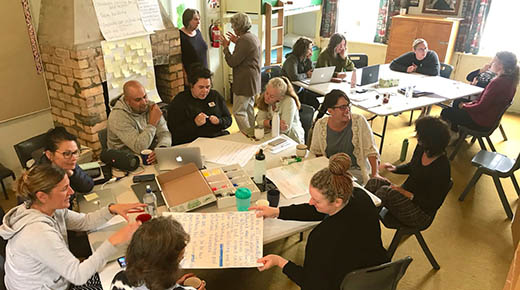
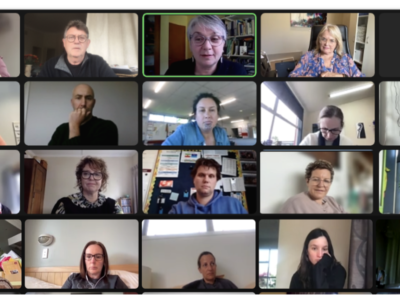

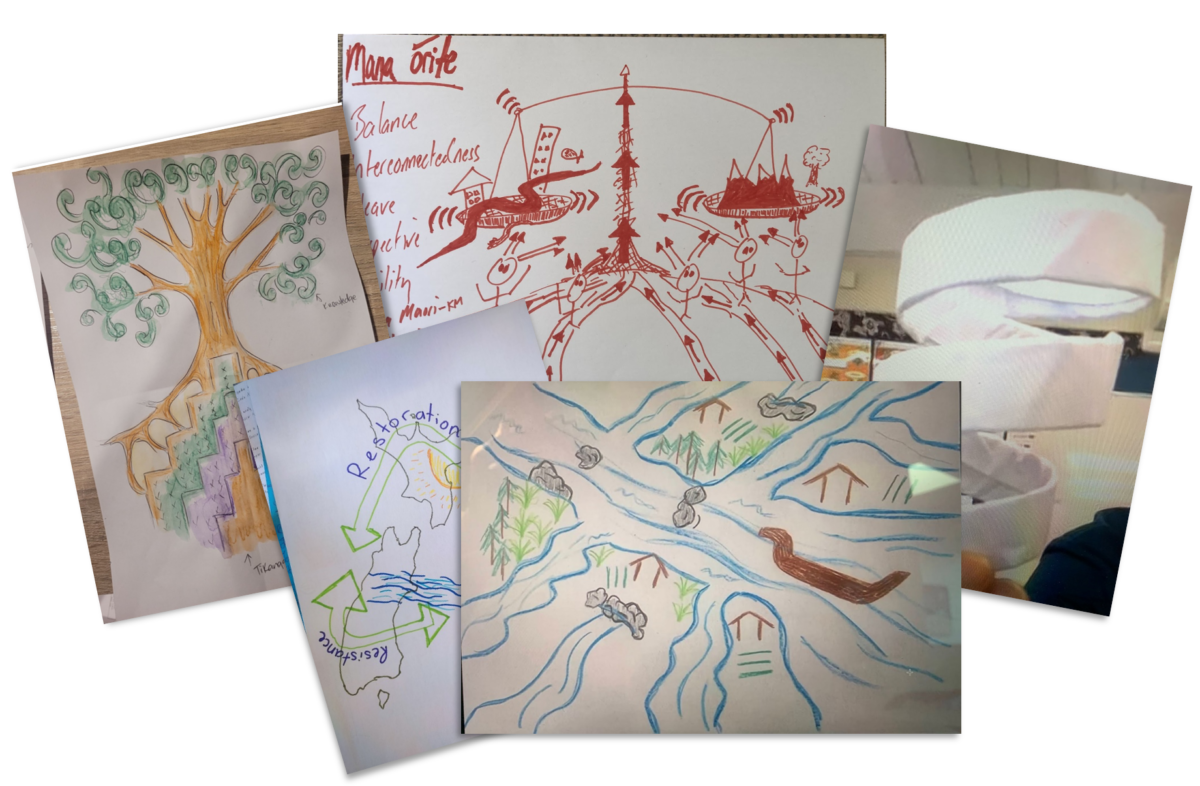
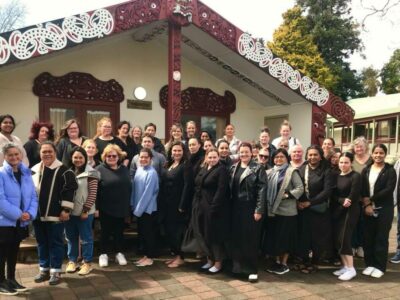

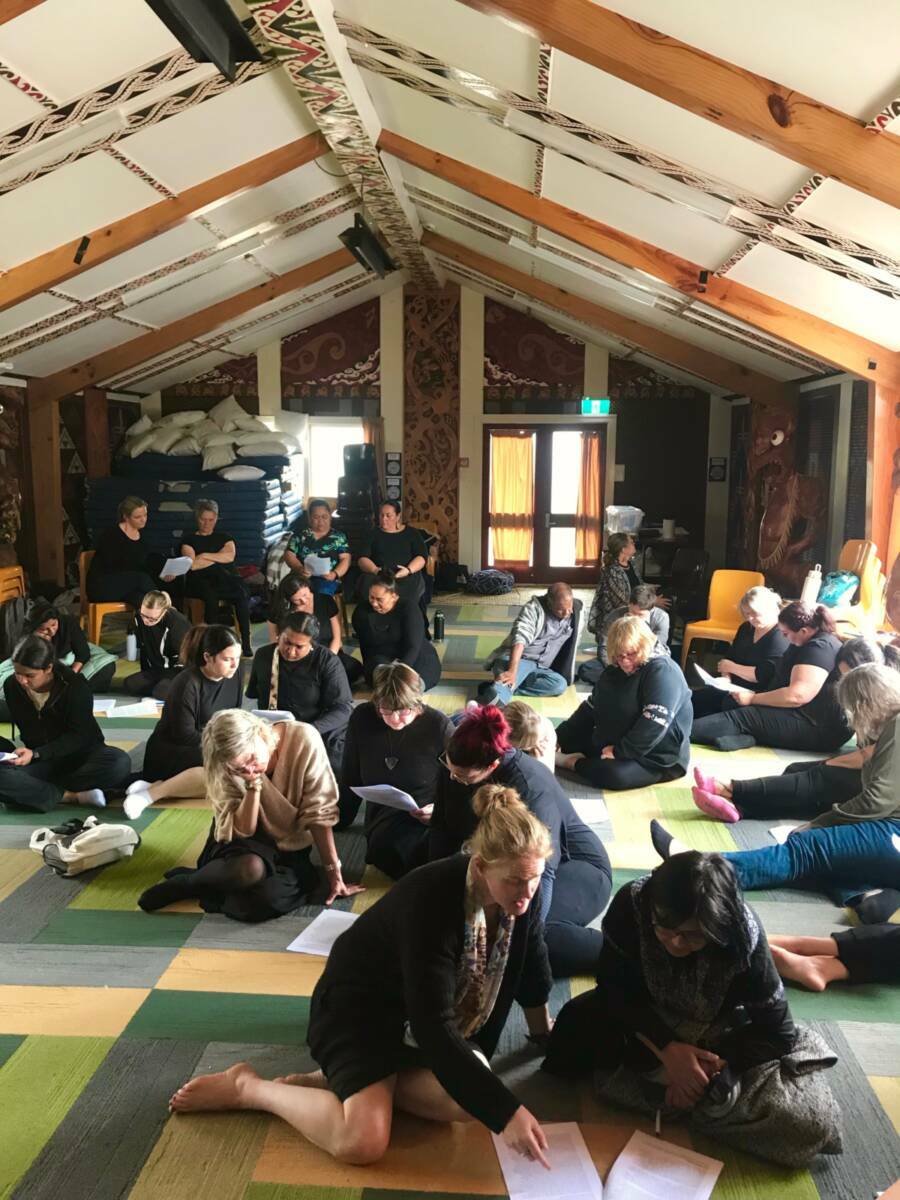 Safe spaces provided by marae, and the power of intimate group discussions, supports the personal commitment to wanting to know more, and that this is not something to be rushed.
Safe spaces provided by marae, and the power of intimate group discussions, supports the personal commitment to wanting to know more, and that this is not something to be rushed.
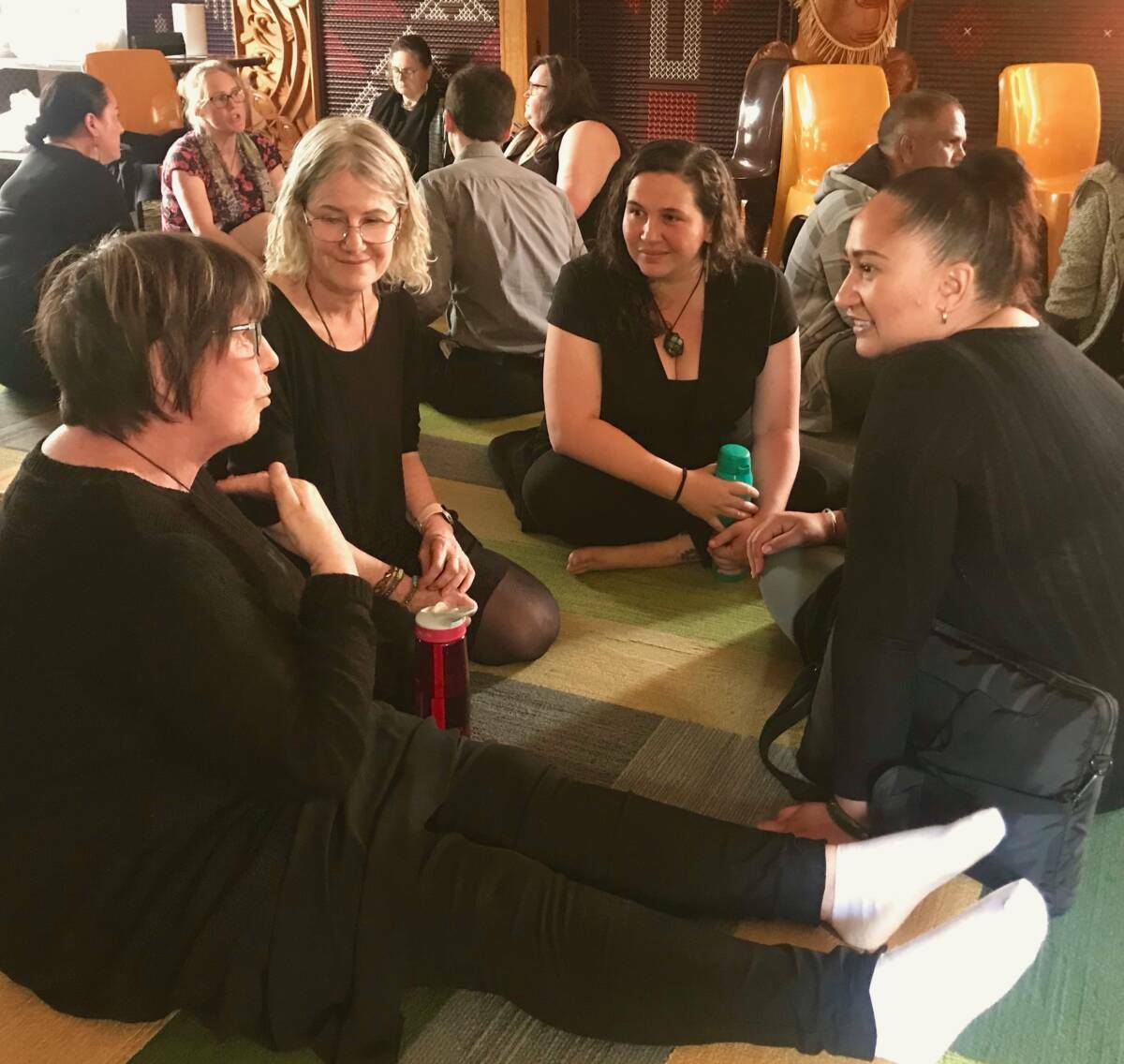 Historical conversations that had never been had, or had actively been avoided, took place:
Historical conversations that had never been had, or had actively been avoided, took place:
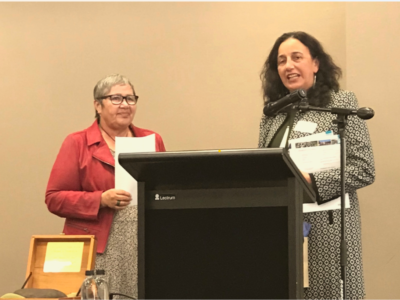
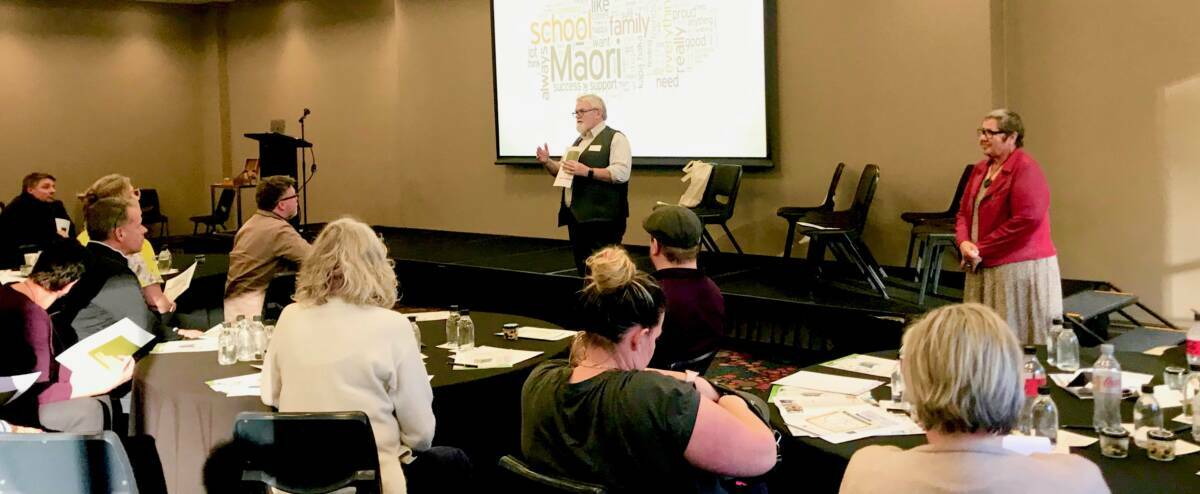
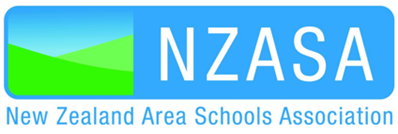 Prof. Mere Berryman recently gave a keynote address and ran a master class during the New Zealand Area Schools Association Conference in Rotorua.
Prof. Mere Berryman recently gave a keynote address and ran a master class during the New Zealand Area Schools Association Conference in Rotorua.
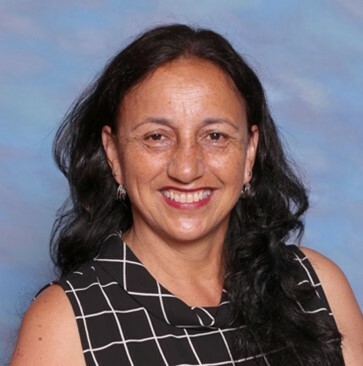 "Mere is so very special, her presence is so humble, and yet her words are so compelling. She reminded us that we all have to connect to the history, our history, and where we sit within that history. Everybody is taking it on board on paper, but if you really want change those of us in leadership roles have to understand where we connect, and where our responsibility lies, otherwise it’s just rhetoric."
"Mere is so very special, her presence is so humble, and yet her words are so compelling. She reminded us that we all have to connect to the history, our history, and where we sit within that history. Everybody is taking it on board on paper, but if you really want change those of us in leadership roles have to understand where we connect, and where our responsibility lies, otherwise it’s just rhetoric."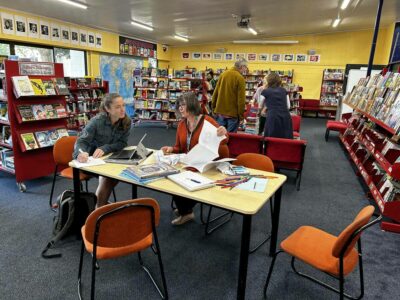
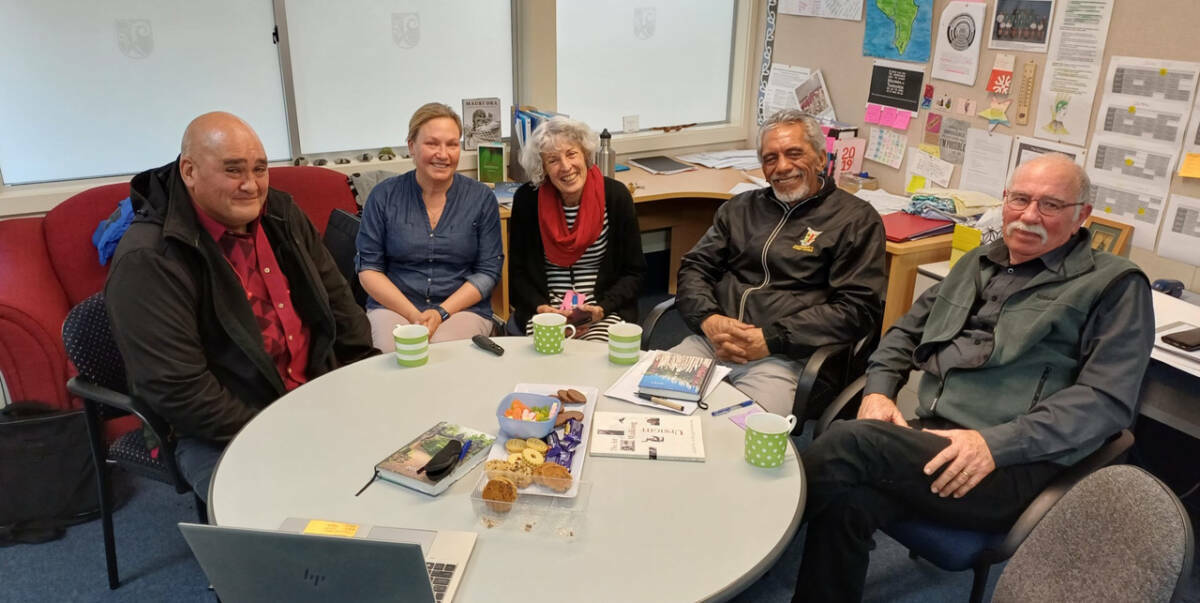 At Kerikeri High School, one small part of the sustainability picture lies in a humble PLD process first conceptualised in early 2021.
At Kerikeri High School, one small part of the sustainability picture lies in a humble PLD process first conceptualised in early 2021.
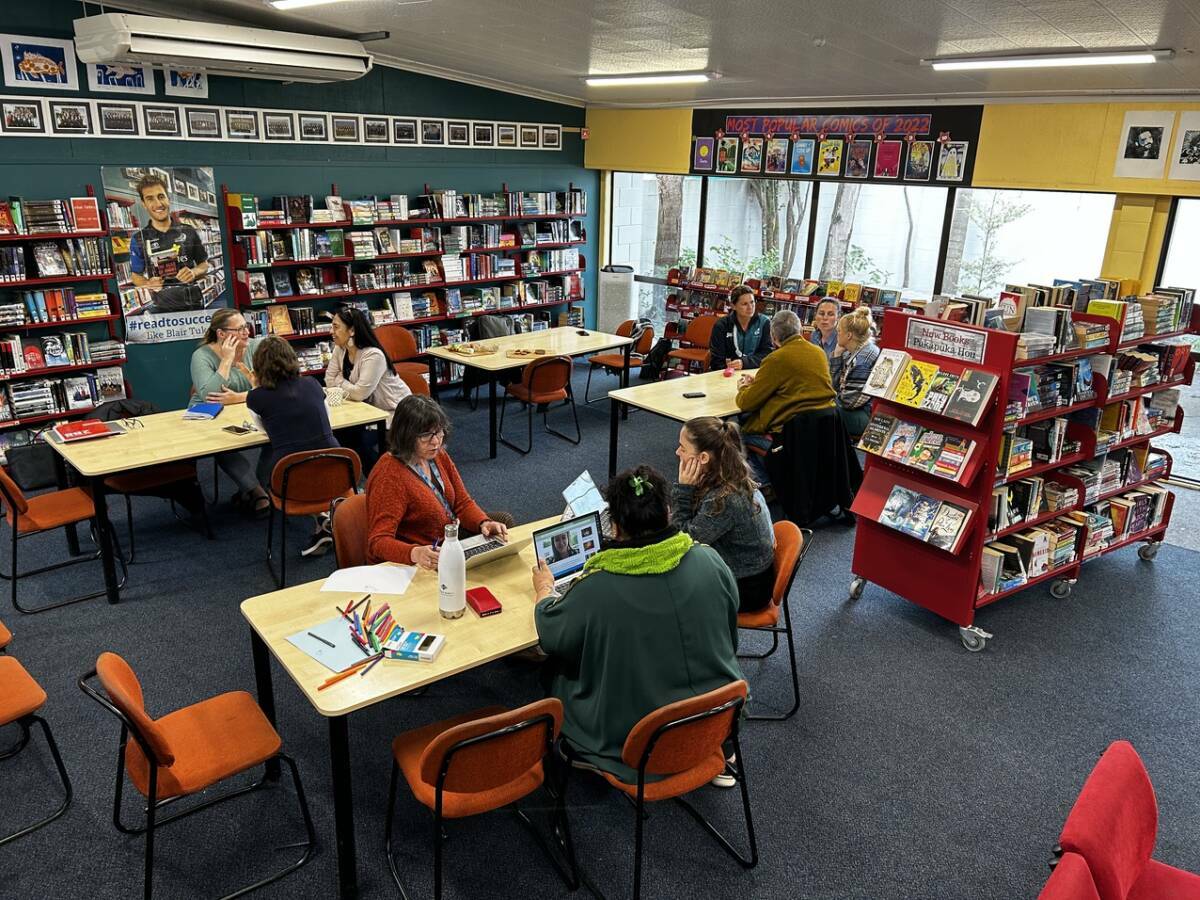 Each after-school session would bring into focus a resource or reading for the group to engage with in the coming fortnight.
Each after-school session would bring into focus a resource or reading for the group to engage with in the coming fortnight.
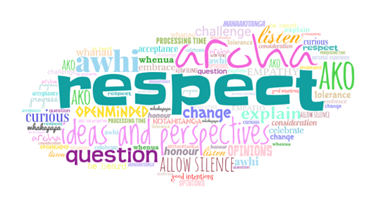
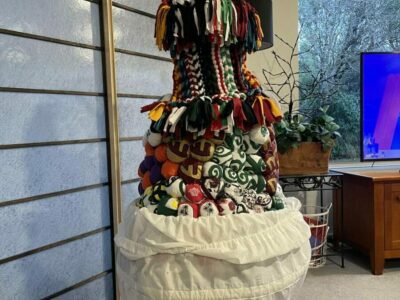
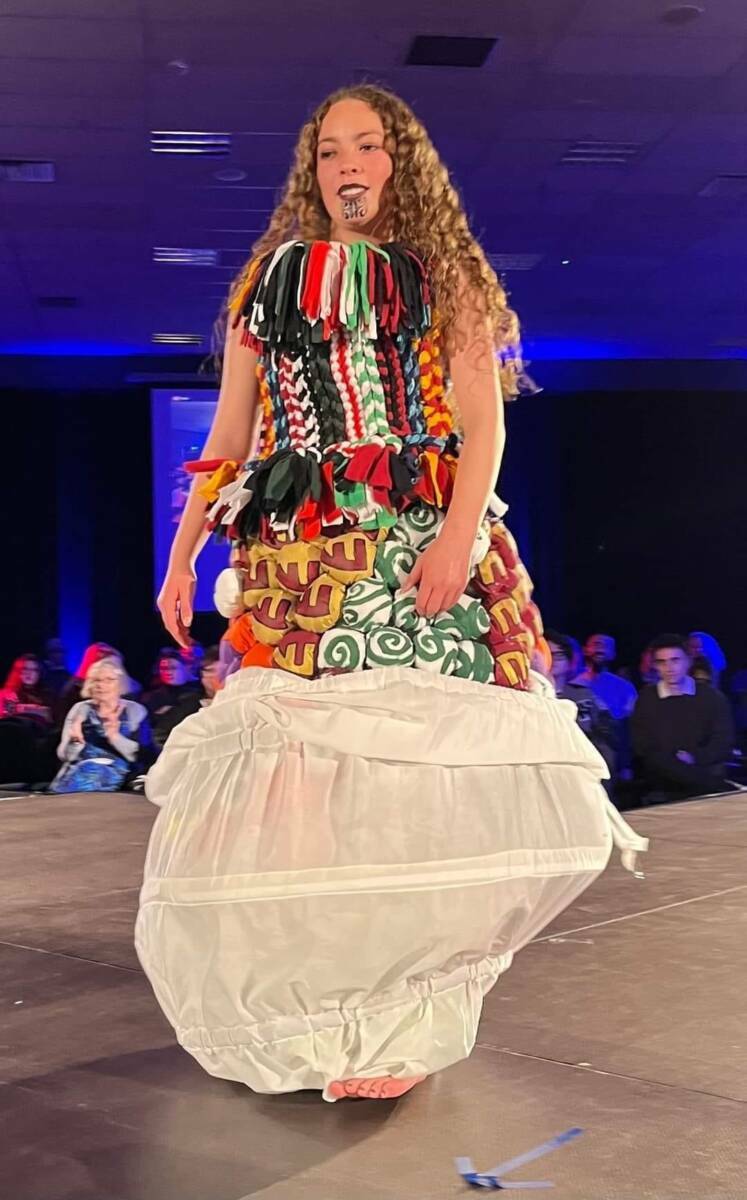 On the night the work was modelled by Menzies College Student Shaelin Moir he uri ia o Ngāi Tahu - a descendent of Ngāi Tahu.
On the night the work was modelled by Menzies College Student Shaelin Moir he uri ia o Ngāi Tahu - a descendent of Ngāi Tahu.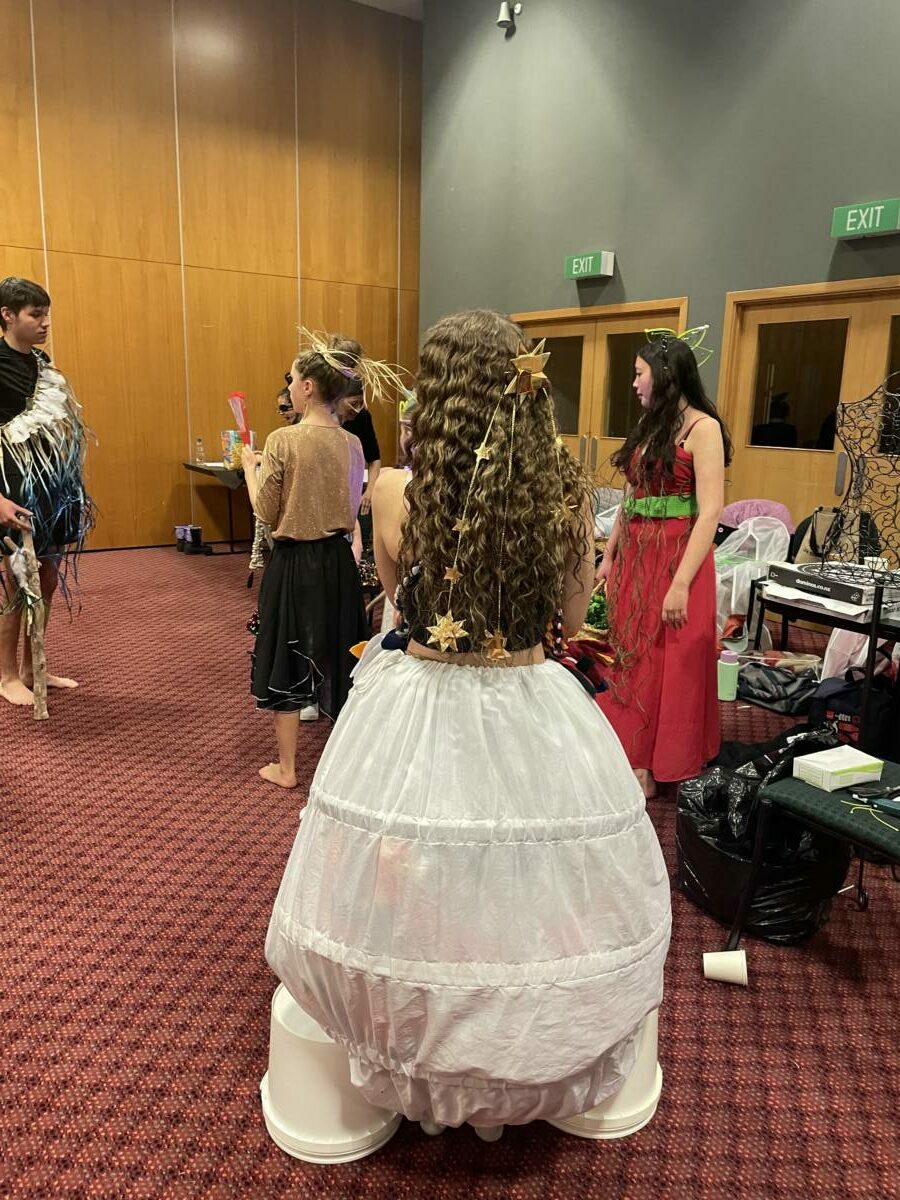 Together the participating education spaces have taken on the challenge to address racism and inequity and to accelerate the achievement and wellbeing of our Maori ākonga and their whanau in their individual spaces and our wider community.
Together the participating education spaces have taken on the challenge to address racism and inequity and to accelerate the achievement and wellbeing of our Maori ākonga and their whanau in their individual spaces and our wider community.